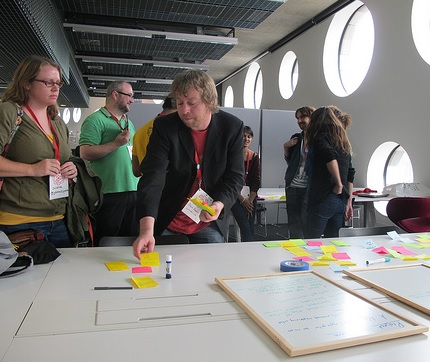
Perception
Let’s address the macro element first, which is how we perceive the situation. Our nerves get frazzled because we frame the situation in its worst case scenario in our minds. It is as though we alone have to go through interviews and no one else. As though it has never been done successfully before. Well, let’s work on changing the way we view this. People just like you have been interviewing for jobs for years, and they will be interviewing for years after yours. Keep your focus on the fact that if anyone else has had success in interviewing, then there is no reason you can’t be successful as well. Picture yourself as one of the millions who have and will interview successfully and you will not feel alone. Remember, it has been done before, so if “them”, why not “you”?
Preparation
Nothing facilitates fear quite like the unknown. The thought of what can be waiting for you around the corner can make you hesitant and affect your overall confidence level. The cure for this is preparation for the process. You should know what the most common questions tend to be, as well as your prepared response. Research the company with which you are interviewing. Be sure you fully understand not only what they do, but their history and where they are heading. Research as much as you can about the position, the department and its purpose. Your know what they say: “Success is what happens when preparation meets opportunity”. Well, the interview is the opportunity, so prepare for success. And Don’t forget to bring extra copies of your resume.
Practice
There is no better facilitator of confidence than familiarity. The more you interview, the more comfortable you will be. Practice every aspect of the interview process via mock interviews. Be it friends and colleagues, or interview coaches and recruiters, simply going through dry runs of the process can make you more comfortable for when faced with the real thing. Get any offers to interview for jobs that you know you do not want to accept? Take those interviews anyway. This is a great time to get some “live fire” experience. Perhaps you can work out some new responses to standard interview questions. Or perhaps you will get one or two odd questions to test your “off-the-cuff” response skills. At some point, you want to be as familiar with the interview process as you are in conversing with your friends. Practice, practice, practice!
Promptness
By the time you meet the interviewer, you want to ensure you are in the right frame of mind. Arriving 15 minutes early allows you to sit for a while, decompress, review your resume and notes and go through whatever other mental exercises work for you to put yourself in the proper head space to deal with the interview process. Running into the door at the exact time of the interview does not allow for this. In fact, it sends a message to the interviewer that you may not fully grasp basic interview etiquette, which is the 15-minute early arrival. If you are not already, familiarize yourself with the location and route. Take into account traffic influences (time of day, construction, etc) and figure out exactly when you need to walk out of the door to get to the interview location on time. Vince Lombardi said that “15 minutes early is on time, and on time is late”. Who are we to argue with him?
Probe
You’ve arrived on time and killed it throughout the interview. But no matter how well you feel you have prepared, you’d better have some questions for the interviewer at the end. The fact is, if you have prepared properly and truly interested in the position, company or industry, you will have questions that your research simply cannot answer. Your questions (providing they are good ones) gives your interviewer insight into the depths of your thought process and overall investment in your career. When an employer brings you aboard, they want to feel you will be there a while. When you have no questions, it communicates a lack of interest and connection to the position and company, not to mention a lack of preparation and thought. Great questions at the end of the interview process also leave the interview on a high note when it comes to their perception of you. Who knows, you may reveal some facts to them about the organization or industry that they may not know themselves.








